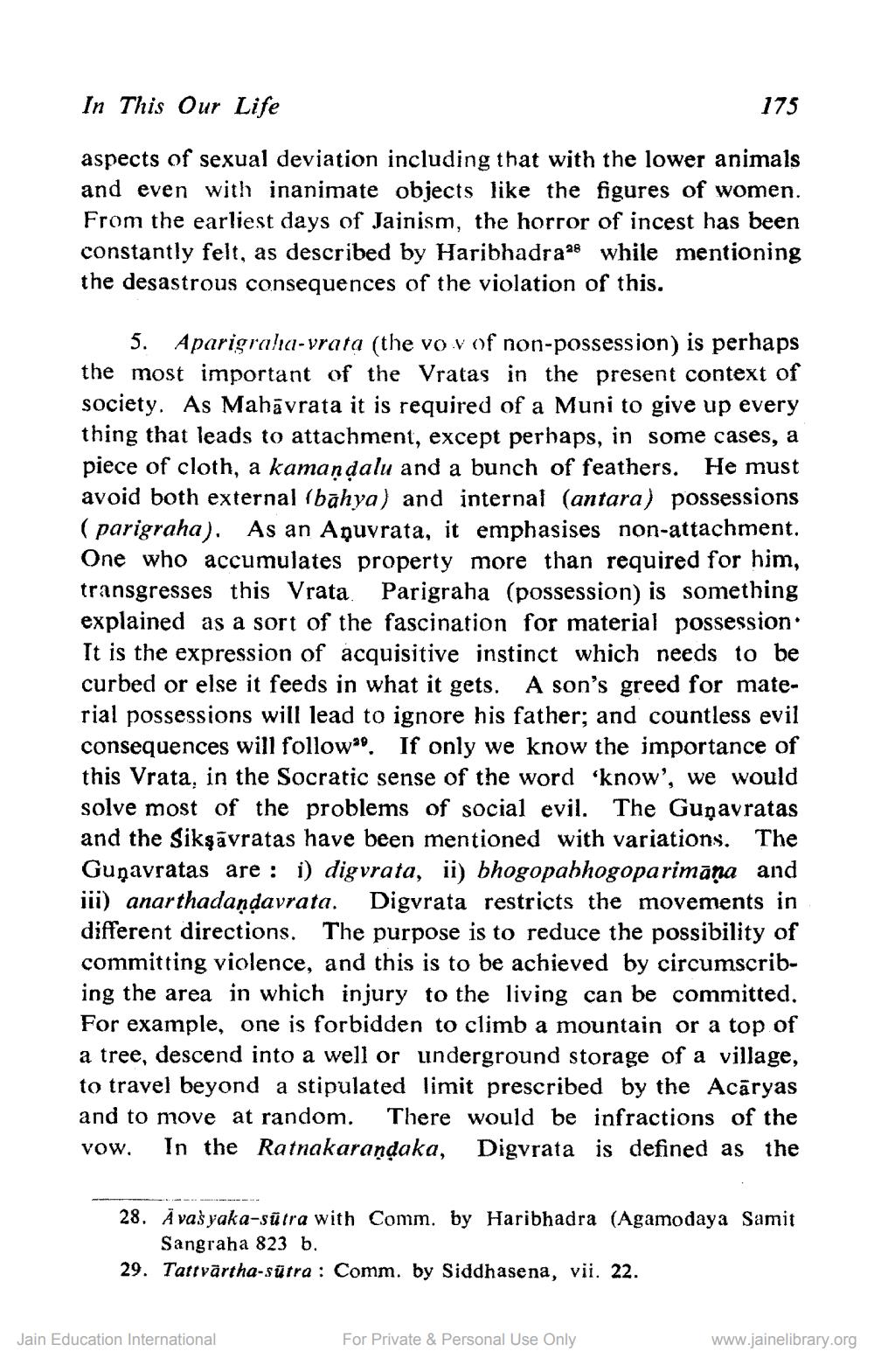________________
In This Our Life
175
aspects of sexual deviation including that with the lower animals and even with inanimate objects like the figures of women. From the earliest days of Jainism, the horror of incest has been constantly felt, as described by Haribhadra28 while mentioning the desastrous consequences of the violation of this.
5. Aparigraha-vrata (the vo v of non-possession) is perhaps the most important of the Vratas in the present context of society. As Mahāvrata it is required of a Muni to give up every thing that leads to attachment, except perhaps, in some cases, a piece of cloth, a kamandalu and a bunch of feathers. He must avoid both external (bahya) and internal (antara) possessions (parigraha). As an Apuvrata, it emphasises non-attachment. One who accumulates property more than required for him, transgresses this Vrata Parigraha (possession) is something explained as a sort of the fascination for material possession: It is the expression of acquisitive instinct which needs to be curbed or else it feeds in what it gets. A son's greed for material possessions will lead to ignore his father; and countless evil consequences will follow. If only we know the importance of this Vrata, in the Socratic sense of the word 'know', we would solve most of the problems of social evil. The Guņavratas and the Sikşāvratas have been mentioned with variations. The Guņavratas are : i) digvrata, ii) bhogopabhogoparimana and iii) anarthadandavrata. Digvrata restricts the movements in different directions. The purpose is to reduce the possibility of committing violence, and this is to be achieved by circumscribing the area in which injury to the living can be committed. For example, one is forbidden to climb a mountain or a top of a tree, descend into a well or underground storage of a village, to travel beyond a stipulated limit prescribed by the Acāryas and to move at random. There would be infractions of the vow. In the Ratnakarandaka, Digvrata is defined as the
28. Avaš yaka-sūtra with Comm. by Haribhadra (Agamodaya Samit
Sangraha 823 b. 29. Tattvārtha-sūtra : Comm. by Siddhasena, vii. 22.
Jain Education International
For Private & Personal Use Only
www.jainelibrary.org




